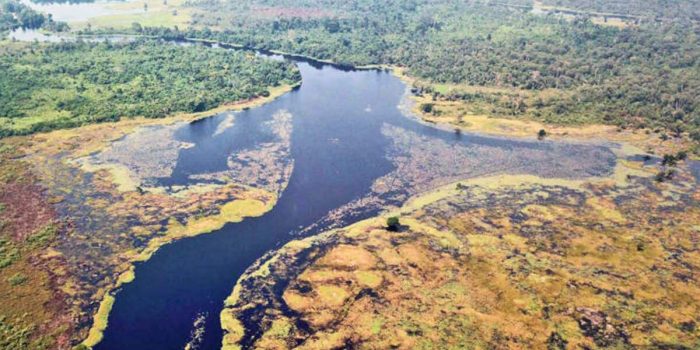Ruki, a river connected to the Congo River, is now known as the darkest river globally because its water is so dark that you can’t even see your face in it.
In the first-ever scientific study of this African river, researchers discovered that the dark water gets its color from organic material dissolved in it. This material comes from the rainforest nearby and is made up of carbon-rich compounds that come from decaying plant matter, carried into the Ruki River by rain and floods. Dr. Travis Drake, the main scientist behind the study, described the Ruki as a kind of “jungle tea” where carbon-rich plant matter brews, making the water darker than the Rio Negro.

“The organic compounds leached from this vegetation absorb light, so the higher the concentration, the darker the water will appear,” Dr. Drake said. “It would be like brewing an extra concentrated tea using many tea bags.”
Using a measuring system, scientists from ETH Zurich in Switzerland found that the Ruki is 1.5 times darker than the Rio Negro in the Amazon, which is famous for its black water. Despite only being a small part of the Congo Basin, the Ruki contributes a significant portion of the Congo’s dissolved carbon.
Matti Barthel, who co-authored the study, stated that the Ruki is one of the richest river systems in the world when it comes to dissolved organic carbon. Its water contains four times more organic carbon compounds than the Congo River and 1.5 times more than the Rio Negro in the Amazon.
“The Ruki is one of the most DOC-rich river systems in the world,” Matti Barthel said.
“We were struck by the color of the river,” said ETH Zurich researcher Travis Drake, adding that it is so dark that you literally can’t see your hand in front of your face.


